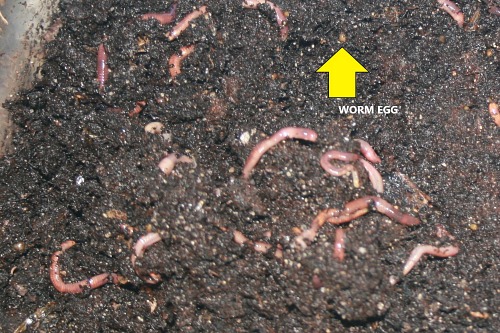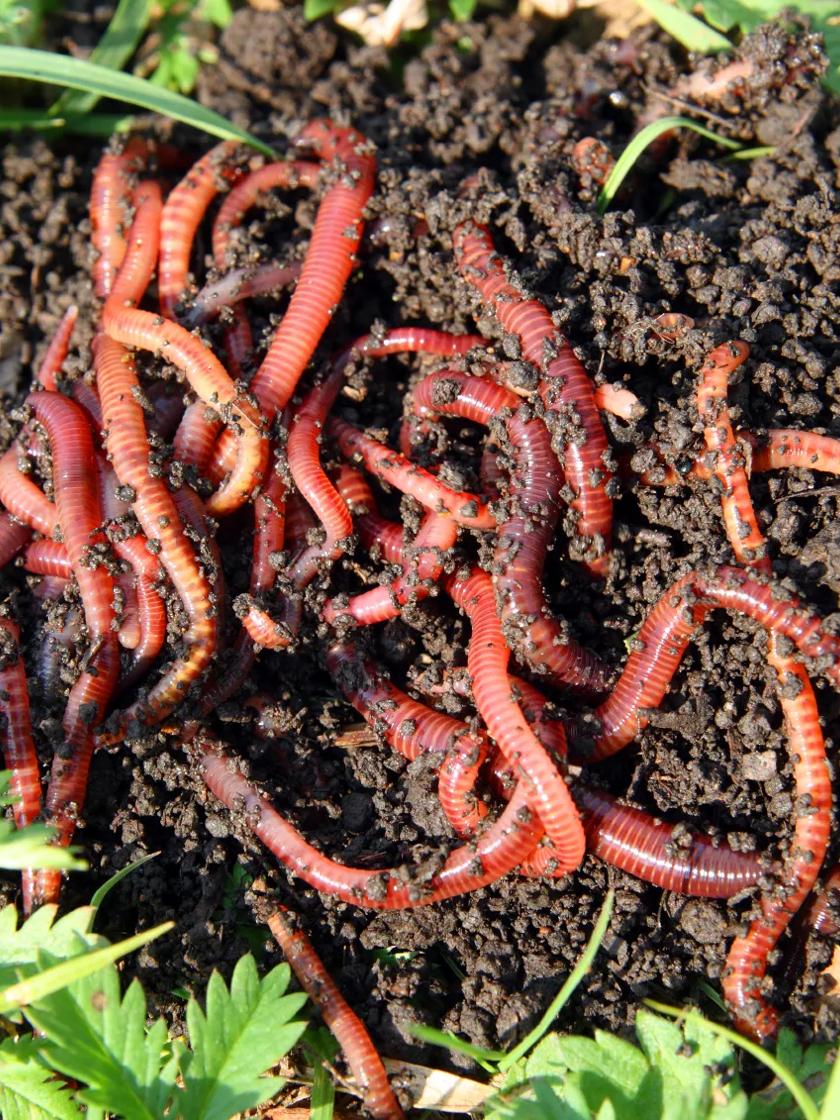Necessary Guide to Red Wiggler Composting: Tips for a Flourishing Worm Farm
Wiki Article
The Benefits of Utilizing Red Wiggler Composting: Discover How This Eco-Friendly Method Improves Soil Health And Wellness and Promotes Plant Growth
The practice of red wiggler composting offers an array of advantages that expand beyond simple waste monitoring, offering substantial advantages for soil health and plant vigor. By changing natural materials into nutrient-rich worm spreadings, this eco-friendly method not just boosts soil framework but also promotes a successful community of advantageous microorganisms.Benefits of Vermicomposting
Vermicomposting, using red wiggler worms, supplies numerous advantages that add to sustainable waste administration and dirt improvement. One of the main advantages is its performance in natural waste disintegration (Red Wiggler Composting). Red wigglers can consume their body weight in organic matter daily, considerably reducing kitchen area scraps and lawn waste, which reduces garbage dump paymentsIn addition, vermicomposting runs at cooler temperature levels contrasted to conventional composting approaches, enabling for year-round handling and lessening odor problems. The existence of red wigglers speeds up the malfunction of products, generating nutrient-rich spreadings that enhance microbial task in the garden compost.
In addition, this technique promotes a closed-loop system where waste is changed right into a useful source, promoting environmental balance. The ease of managing a vermicomposting system makes it obtainable for both urban and country settings, motivating area engagement in sustainable techniques.
Enhancing Dirt Nutrients
The nutrient-rich spreadings created by red wigglers serve as a powerful amendment for enhancing soil top quality. These worm spreadings are rich in necessary macro and micronutrients such as nitrogen, phosphorus, calcium, magnesium, and potassium, which are important for plant health and wellness and development. Unlike synthetic plant foods, which can cause nutrition leaching and soil degradation, worm spreadings give a slow-release resource of nutrients that enhance soil framework and fertility gradually.Additionally, the natural matter discovered in worm castings improves soil oygenation and water retention. This is especially advantageous for plants, as it assists in much better root growth and advertises overall plant vigor. The well balanced nutrient account of worm spreadings also reduces the risk of nutrient shed that is frequently linked with chemical fertilizers.
Incorporating red wiggler garden compost right into yard dirt or potting mixes not just enriches the nutrient content yet additionally supports sustainable gardening practices - Red Wiggler Composting. By using this eco-friendly strategy, garden enthusiasts can promote much healthier plants, enhance plant yields, and contribute favorably to soil ecological community wellness. Generally, boosting dirt nutrients through red wiggler composting is a practical strategy to sustainable farming and horticulture
Supporting Beneficial Microorganisms
Exactly how can red wiggler composting enhance the microbial diversity in dirt? Red wigglers, recognized for their reliable decomposition of raw material, add substantially to the establishment of a rich microbial community. As these worms eat compost products, they damage them down into smaller fragments, making nutrients much more available for different bacteria. This procedure cultivates a diverse array of helpful germs, fungis, and protozoa, which are necessary for dirt health and wellness.
The castings created by red wigglers are bristling with microorganisms that advertise nutrition biking and improve soil framework. These microbial areas play an essential duty in breaking down organic matter, launching vital nutrients that plants can soak up. In addition, several of these microorganisms add to soil gathering, enhancing oygenation and water retention.
Furthermore, the visibility of varied microbial populations assists reduce soil-borne illness by outcompeting damaging microorganisms. This natural biocontrol device is crucial for preserving healthy plant development. To conclude, red wiggler composting not only enriches the soil with nutrients however likewise promotes about his a vivid microbial community, which is important for lasting farming techniques and developing resistant ecosystems.
Lowering Kitchen Area Waste
Frequently ignored in waste monitoring discussions, red wiggler composting uses a reliable solution for minimizing kitchen waste. By utilizing red wigglers, natural cooking area scraps that would commonly end up in land fills can be transformed right into nutrient-rich compost. This procedure significantly lessens the volume of waste created, thus alleviating stress on waste management systems and contributing to lasting living techniques.
In addition, red wiggler composting can be conveniently applied in both urban and country settings, making it obtainable to a broad audience. This method encourages people to embrace environmentally friendly practices in their day-to-days live, fostering a better recognition of waste monitoring and ecological responsibility. Inevitably, red wiggler composting works as a functional and effective method for minimizing cooking area waste while advertising an extra sustainable lifestyle.
Improving Plant Development
Making use of red wiggler compost not just addresses cooking area waste reduction yet likewise dramatically boosts plant development. The nutrient-rich compost generated by these earthworms consists of vital macronutrients and trace elements, consisting of potassium, phosphorus, and nitrogen, which are important for plant growth. This natural fertilizer adds to enhanced dirt structure, helping with better oygenation and water retention, which are critical for healthy and balanced root systems.In addition, red wiggler garden compost is bristling with valuable microbes that promote soil health. These microbes aid in breaking down raw material, making nutrients much more easily accessible to plants. The presence of valuable microorganisms and fungi cultivates a symbiotic connection with plant origins, strengthening nutrient uptake and boosting resistance to diseases.
In addition, using red wiggler garden compost can help regulate dirt pH degrees, creating an optimal setting for varied plant species. The slow-release nature of the nutrients guarantees that plants get a constant supply with time, lowering the threat of view publisher site nutrient leaching and decreasing the need for chemical fertilizers.
Final Thought

The method of red wiggler composting offers an array of advantages that extend past easy waste management, using significant advantages for soil health and wellness and plant vitality.Vermicomposting, utilizing red wiggler worms, provides countless advantages that add to sustainable waste administration and dirt improvement. Red Wiggler Composting. Unlike artificial fertilizers, which can lead to vitamins and mineral leaching and soil deterioration, worm castings offer a slow-release resource of nutrients this post that boost dirt structure and fertility over time
Overall, boosting dirt nutrients via red wiggler composting is a pragmatic strategy to sustainable farming and horticulture.
In final thought, the use of red wiggler composting offers considerable advantages for soil health and wellness and plant development.
Report this wiki page